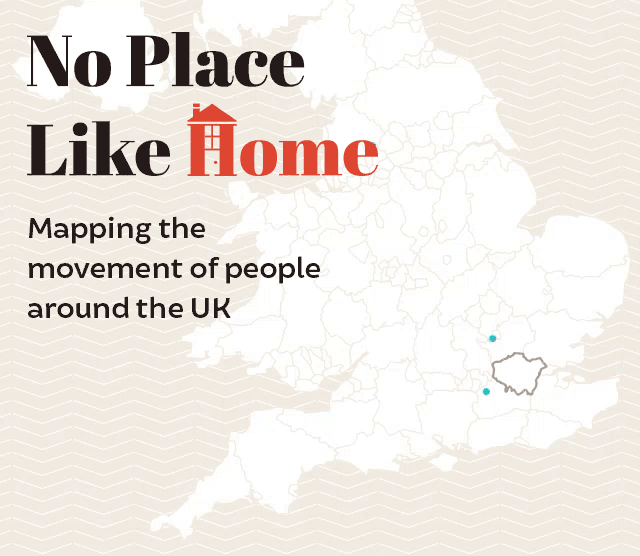An internal migration map of Britain has revealed London lost 68,000 residents in one year as 30-somethings ditch the Big Smoke for the Home Counties.
A total of 2.85 million people moved internally in the UK in one year, according to the data, with many migrating towards the capital. However, a notable exodus was also recorded as young adults look to buy properties and start families outside London.
The counties with the highest rates of net migration – areas in the UK where more people moved in than moved out – are Essex, Kent, Devon, East Sussex, and West Sussex, counties especially popular with ex-Londoners, who account for 30 per cent of people moving into these areas.
Findings from the analysis, which was based on data from the ONS Internal Migration series documenting residential moves between local authorities and regions in England and Wales, also found Birmingham, Bradford, and Manchester were big losers when it came to internal migration, losing 5,137 people, 3,336, and 3,076 people respectively. Ex-residents in these cities sought out refuge in suburban areas outside the city centre like Solihull and Trafford.
The most common age amongst people who move within the UK is 19, likely due to relocating for further studies or university – there were nearly 150,000 people of this age who moved within the UK in 2014. The second most common age was 22 – about 120,000 people of this age moved around the UK in the same year.
Ben Wilson, Gocompare.com’s home insurance spokesperson said: “Cities with big universities continue to attract vast numbers of students and London has once again proved to be a top destination for graduates and professionals wanting to further their careers. While I don’t see that changing in the future, it’s encouraging to see so many people opting to relocate to smaller, up-and-coming areas across the UK in search for a place to call home.”
Gocompare.com have visualised the analysis in a new interactive map which allows people to find out where people in the UK are moving to, which places people are leaving, and where they’re staying put.

Click image to open interactive version (via Gocompare.com).
